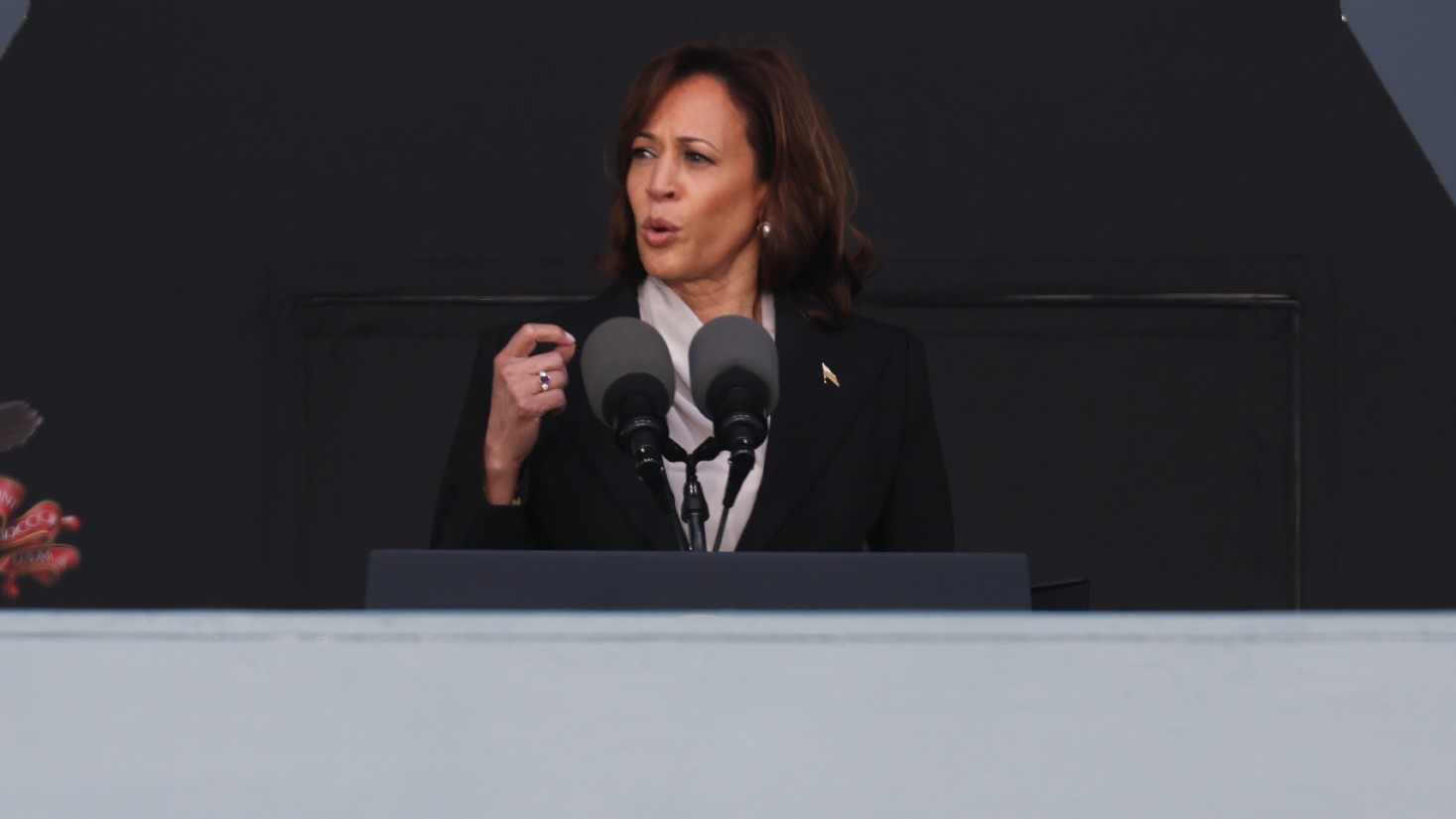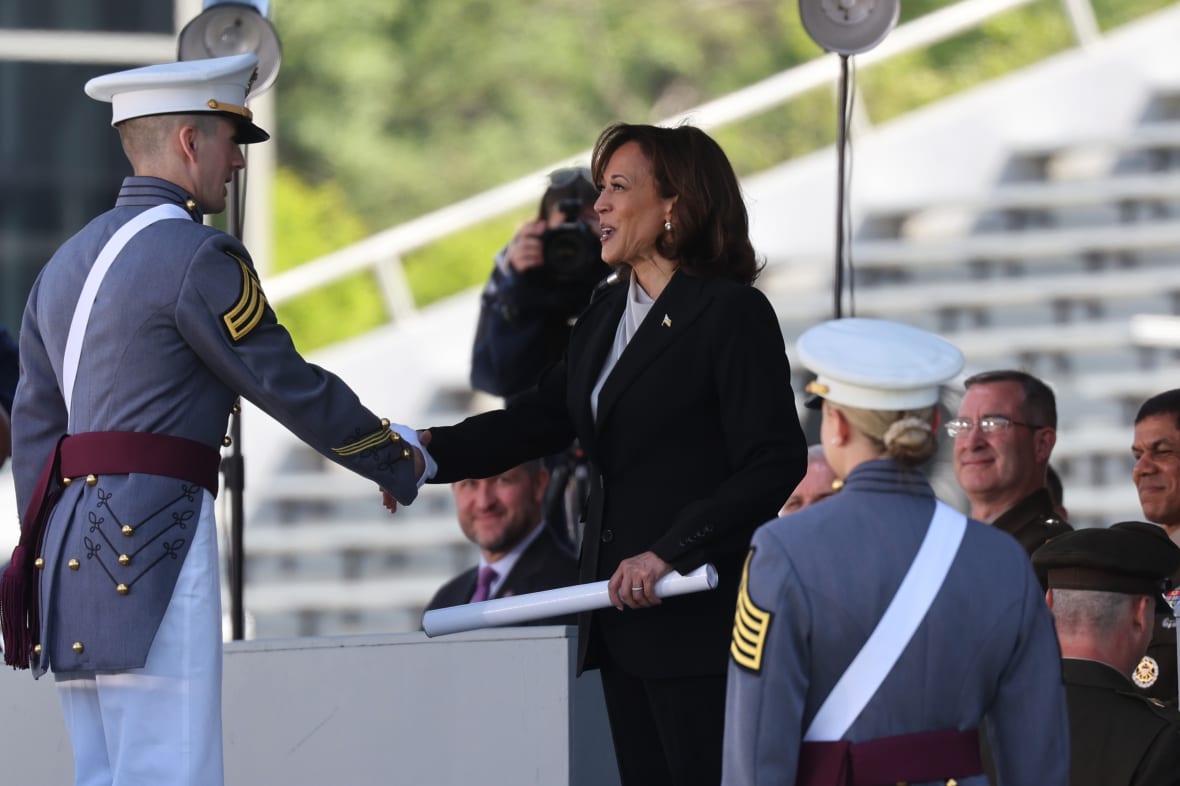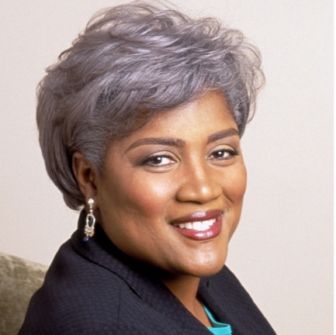Vice President Harris, the first woman to deliver the commencement address at West Point, extols the virtues of a diverse military
OPINION: “Our military is strongest when it reflects the people of America,” the vice president told the graduating cadets. Editor’s The post Vice President Harris, the first woman to deliver the commencement address at West Point, extols the virtues of a diverse military appeared first on TheGrio.

OPINION: “Our military is strongest when it reflects the people of America,” the vice president told the graduating cadets.
Editor’s note: The following article is an op-ed, and the views expressed are the author’s own. Read more opinions on theGrio.
Vice President Kamala Harris delivered the commencement address at the U.S. Military Academy at West Point on Saturday and said that “our military is strongest when it fully reflects the people of America” in its diversity.
“You stand on the broad shoulders of generations of Americans who have worn the uniform,” Harris told some 950 graduating cadets, receiving a standing ovation for her remarks. She told the graduates they will play a vital role in defending the United States and thanked them for being willing to risk their lives to selflessly serve our nation.
“The power of America’s military not only rests on our technology, our weaponry, our hardware, it rests on the character and the resolve of our people,” Harris said.
The vice president is the first woman to speak to a graduating class at the academy, which was founded in 1802 to educate cadets to become Army officers. Graduates are commissioned as second lieutenants.
Other Black speakers at past West Point commencements were Defense Secretary Lloyd Austin in 2021, President Barack Obama in 2010 and 2014, Army Secretary Togo West in 1994 and Army Chief of Staff (and later Secretary of State) Colin Powell in 1990.
President Joe Biden spoke to graduating seniors at West Point in 2016 when he was vice president. Biden will deliver the commencement address at the U.S. Air Force Academy on Thursday.
Harris spoke to the graduating class at the U.S. Coast Guard Academy last year and to graduates of the U.S. Naval Academy in 2021.
Black Americans have served in the American military and defended our nation in combat since the Revolutionary War, at a time when many were enslaved. Even long after, Black service members — including my own father, who served in the Army during the Korean War — returned home to face segregation and racial discrimination.
Racism was rampant at West Point throughout much of its history. In its first 133 years, the academy graduated more than 10,000 white men and only three Black men. Women, who were first admitted in 1976, now make up about a quarter of the student body and over 5,000 have graduated from West Point.
Henry Ossian Flipper, who was born enslaved and was emancipated at the end of the Civil War, became the first Black graduate of the academy in 1877 and went on to command Black troops (the Army wasn’t desegregated until 1948).

While at West Point, Flipper and the few other Black cadets (most of whom were pushed out before graduating) “endured physical and emotional abuse and racist treatment from their white peers and professors … [and] were ostracized, barred from social activities with other cadets, and spoken to only when officially necessary,” Patri O’Gan wrote on the website of the National Museum of African American History and Culture.
Racism resulted in Flipper being unjustly court-martialed in 1881 on charges of embezzlement and “conduct unbecoming an officer and gentleman.” Although Flipper was acquitted of embezzlement, he was dismissed from the Army in 1882. It wasn’t until 1976 that his descendants secured an honorable discharge for him, followed by a full pardon from President Bill Clinton in 1999.
More than 100 years after Flipper became the first Black graduate of West Point, Patricia Walker Locke and Joy Suzanne Dallas Eshelman became the first Black women to graduate from the academy in 1980. Locke retired from the Army in 1995 and went on to serve as president of a foundation serving underrepresented communities. Eshelman retired from the Army in 2001.
I’ll bet those responsible for the racist treatment of Flipper and other Black cadets and Army soldiers and officers couldn’t imagine a day when the U.S. armed forces would be fully integrated and a Black president, a Black female vice president and other prominent Black Americans would be delivering commencement addresses at West Point.
As the Rev. Dr. Martin Luther King Jr. said: “The arc of the moral universe is long, but it bends toward justice.”

Donna Brazile is a veteran political strategist, Senior Advisor at Purple Strategies, New York Times bestselling author, Chair of the J. William Fulbright Foreign Scholarship Board, and sought-after Emmy- and Peabody-award-winning media contributor to such outlets as ABC News, USA Today and TheGrio. She previously served as interim Chair of the Democratic National Committee and of the DNC’s Voting Rights Institute. Donna was the first Black American to serve as the manager of a major-party presidential campaign, running the campaign of Vice President Al Gore in 2000. She serves as an adjunct professor in the Women and Gender Studies Department at Georgetown University and served as the King Endowed Chair in Public Policy at Howard University and as a fellow at the Institute of Politics at Harvard Kennedy School. She has lectured at nearly 250 colleges and universities on diversity, equity and inclusion; women in leadership; and restoring civility in American politics.
TheGrio is FREE on your TV via Apple TV, Amazon Fire, Roku, and Android TV. Please download theGrio mobile apps today!
The post Vice President Harris, the first woman to deliver the commencement address at West Point, extols the virtues of a diverse military appeared first on TheGrio.












